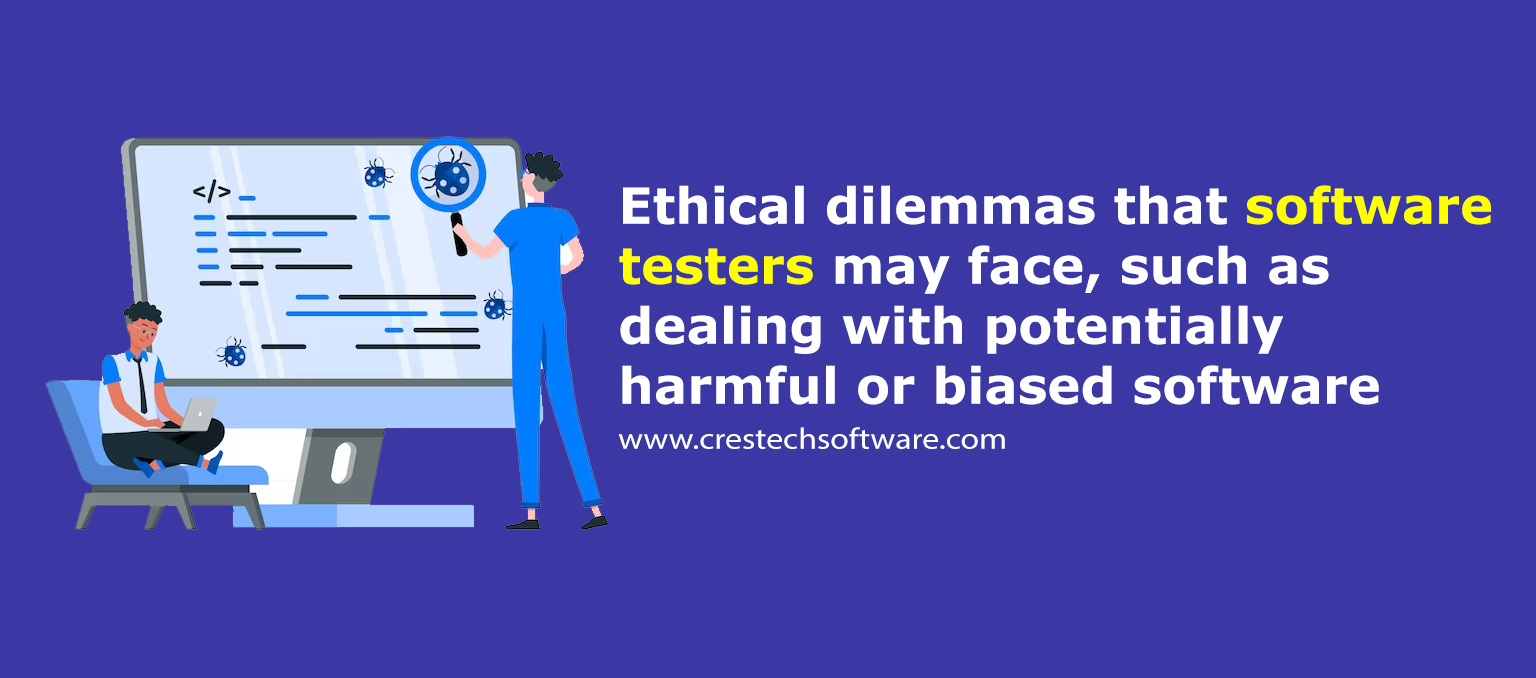Testers in the software industry often encounter a range of ethical dilemmas, especially when dealing with potentially harmful or biased software. These dilemmas can be challenging to navigate and require careful consideration of both professional and moral responsibilities. Here are some of the ethical dilemmas testers may face:
Harmful Software: Testers may come across software that has the potential to cause harm to users, either through security vulnerabilities, data breaches, or unintended consequences. The ethical dilemma lies in whether to report these issues promptly or to remain silent, possibly putting users at risk.
Biased Software: Testers may encounter software that exhibits bias, such as machine learning algorithms that discriminate against certain demographic groups. The ethical dilemma here is whether to report the bias and advocate for fairness in the system or to turn a blind eye and allow the bias to persist.
Privacy Concerns: Testers often have access to sensitive user data during testing. Ethical questions arise about how this data is handled, whether it’s adequately protected, and whether testers should voice concerns if they suspect that privacy is not being adequately safeguarded.
Conflict of Interest: Testers sometimes work for organizations with conflicting interests. They may be pressured to ignore or downplay issues to meet tight deadlines or protect the company’s reputation. This dilemma involves choosing between loyalty to the employer and the duty to ensure software quality and user safety.
Unrealistic Expectations: Stakeholders, including management, may have unrealistic expectations about what can be achieved in a given time frame. Testers may face the dilemma of whether to push back against these expectations, risking conflict, or comply with them and potentially compromise software quality.
Whistleblowing: When testers discover unethical practices, security breaches, or other issues within their organization, they may face the difficult decision of whether to blow the whistle on their employer. This can have personal and professional consequences, including potential retaliation.
Unclear Boundaries: Ethical dilemmas can also arise when there are ambiguous boundaries between the roles and responsibilities of testers and developers. Testers may be asked to engage in activities that could be seen as compromising their objectivity, such as assisting in code cover-ups or failing to report issues to meet project goals.
Access to Vulnerabilities: Testers often uncover vulnerabilities that can be exploited by malicious actors. They must decide how to responsibly disclose these vulnerabilities to minimize harm and protect users, which can involve a fine balance between public disclosure and responsible disclosure to the software provider.
Bias in Testing: Testers themselves can introduce bias into testing, intentionally or unintentionally. For instance, they might focus testing efforts more on certain functionalities, neglecting others. This could lead to biased results that don’t accurately represent the software’s overall quality.
To address these ethical dilemmas, testers can consider the following principles:
User Safety First: Prioritize the safety and well-being of users over organizational interests.
Transparency: Advocate for transparency in the testing process, and openly communicate any concerns or issues discovered.
Whistleblowing Protections: Be aware of whistleblower protection laws and internal reporting mechanisms, if available.
Ethical Guidelines: Adhere to industry-standard codes of ethics and best practices, such as those provided by professional organizations like the ACM or IEEE.
Continuous Learning: Stay informed about ethical issues in software testing and continually develop ethical decision-making skills.
Seek Guidance: Consult with colleagues, mentors, or ethical experts when facing complex ethical dilemmas.
Balancing professional responsibilities with ethical concerns is an ongoing challenge for testers, but it is essential for ensuring the integrity and safety of the software they test.
You may also like our blog on “A Day in the Life of a Software Tester”
Ethical dilemmas that software testers may face, such as dealing with potentially harmful or biased software


